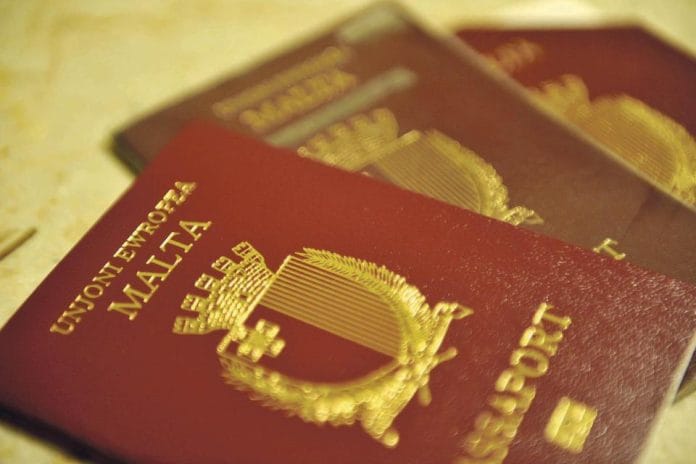“Whatever the European Court decides,” and “If it says it can’t be done, we won’t do it; if it says it can, we will.”
This was roughly the stance of Edi Rama in Tirana in March 2023, at a press conference after the end of the Albania/EU Stabilization and Association Council meeting, in the presence of Mr. Josep Borrell, then-High Representative for Foreign Policy, and Mr. Oliver Varhelyi, then-Commissioner for Enlargement. The topic was “golden passports,” or the granting of citizenship to foreigners in exchange for fees or specific investments.
Golden passports as a problematic source of money
For years, Rama had been committed to this project, participating in international events dedicated to “citizenship through investment,” such as in London in November 2019, where he called the idea “the right way” and “something we must do.” He clarified that the European Commission opposed the initiative, but in this case, he noted that Brussels was wrong.
At the time, golden passports were practiced in three EU member states: Bulgaria, Cyprus, and Malta. Brussels, rightly, viewed this as a channel through which suspicious and dangerous individuals from third countries, including hostile states, could infiltrate. These passports were a chink in armor bringing risks to national security, supporting money laundering, and fostering corruption.
In Bulgaria and Cyprus, where scandals erupted — including videos of politicians accepting bribes in exchange for passport promises — Brussels’ efforts led to the legal termination of these programs.
Only Malta’s Prime Minister Joseph Muscat (Labour Party), who initiated the scheme in 2014, resisted Brussels in the name of “sovereignty and the interest of the Maltese people.” This resistance continued even after bribery scandals and Muscat’s resignation following evidence of his government’s involvement in the murder of an investigative journalist. His successor, Robert Abela, who was found to have personally profited by renting property to Russian applicants for citizenship, maintained the same stance. The European Commission was forced to sue Malta for violating treaties and abusing “European citizenship.” In fact, Malta was not merely granting Maltese passports but, as an EU and Schengen Area member, it was actually offering to the neo-Maltese citizens opportunities and privileges across Europe.
In Albania, Rama was forced to make the aforementioned statement (March 2023), but his government passed comprehensive legislation for the sale of passports, including the establishment of a special agency within the Ministry of Interior and the unprecedented provision that a concessional company (PPP) would conduct the applicant screening process. While the Albanian passport did not offer all the opportunities of its Maltese counterpart, it still provided visa-free travel to Europe.
The court’s verdict against Malta’s golden passports
On April 29, the Court of Justice of the European Union ruled against Malta and its golden passports, stating that obtaining EU citizenship cannot result from a commercial transaction. Such “commercialization” of citizenship is incompatible with the fundamental concept of EU citizenship as defined by the treaties. It violates the principle of sincere cooperation and undermines mutual trust among member states regarding the granting of citizenship.
While acknowledging that member states are free to determine the conditions for granting citizenship, the Court ruled that this must comply with EU law. The Court stated that member states cannot grant citizenship — and consequently EU citizenship — in exchange for predetermined payments or investments. Citizenship is based on “solidarity, good faith, and reciprocity of rights and obligations between the state and its citizens,” and Malta’s scheme, which effectively commercializes citizenship, is incompatible with these principles, the Court emphasized.
This decision blocks Malta and any EU member state from selling citizenship. As the Maltese opposition said after the decision became known, “our passports have value, but not a price.”
It is unlikely that Rama will comment on this development or explain why he sought to use — or abuse — an achievement secured three years before he took the oath as Prime Minister. It is noteworthy that a problematic project with negative consequences for the country (and the EU) could not be stopped by the opposition, civil society, media, or the judiciary.
This time, help came from the European Commission. Fortunately, the EU’s interests aligned strictly with Albania’s. This contrasts with cases where certain Brussels officials may verbally support the rule of law and oppose abstract corruption but, through statements, gestures and other signals, express sympathy for Edi Rama’s authoritarian and kleptocratic regime.
Nevertheless, thanks to the Commission for this much.








